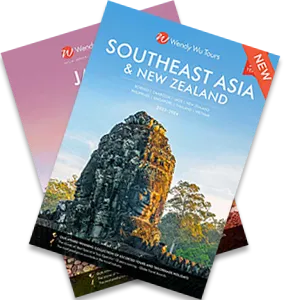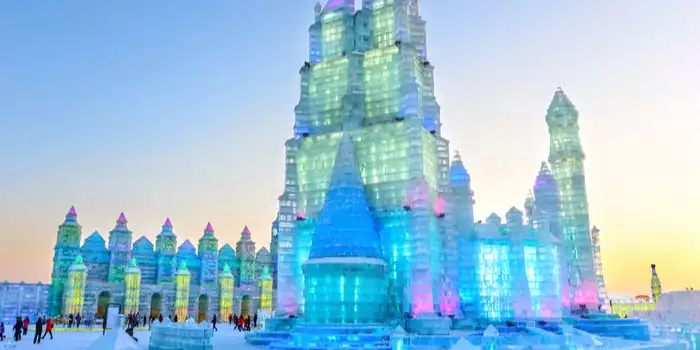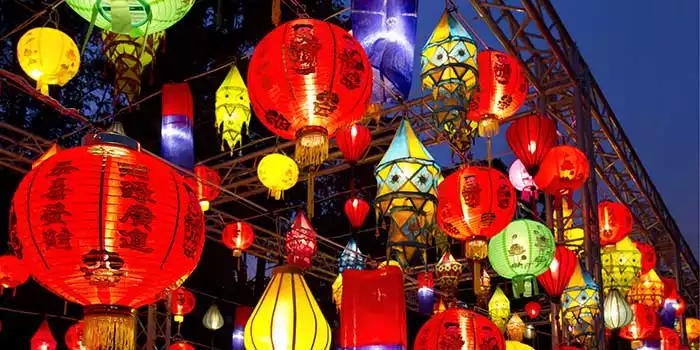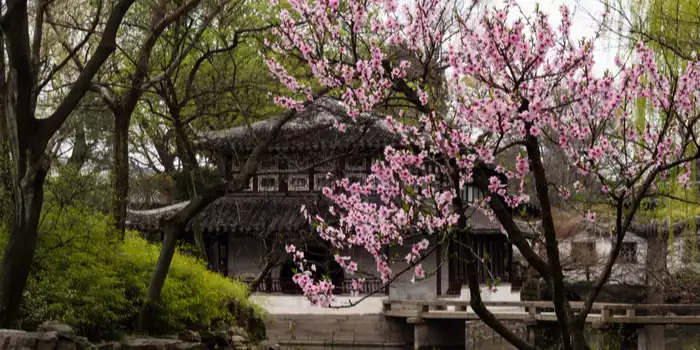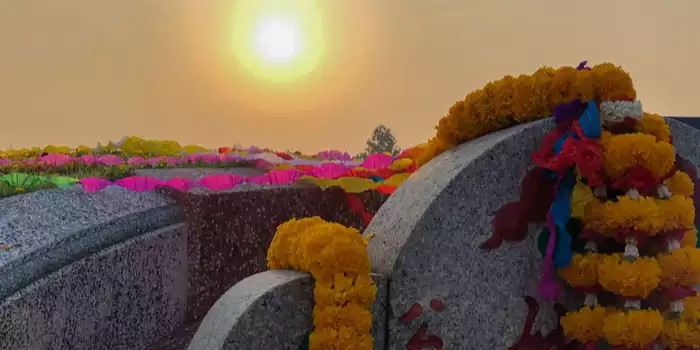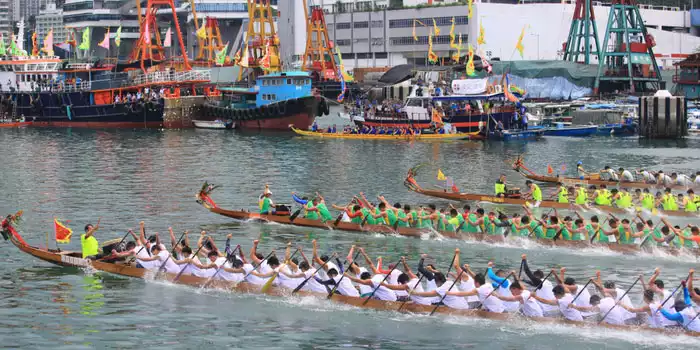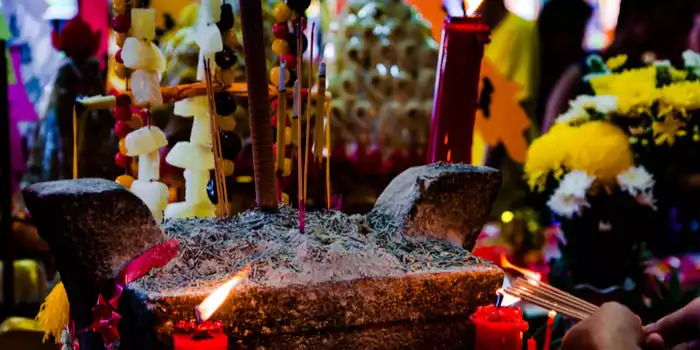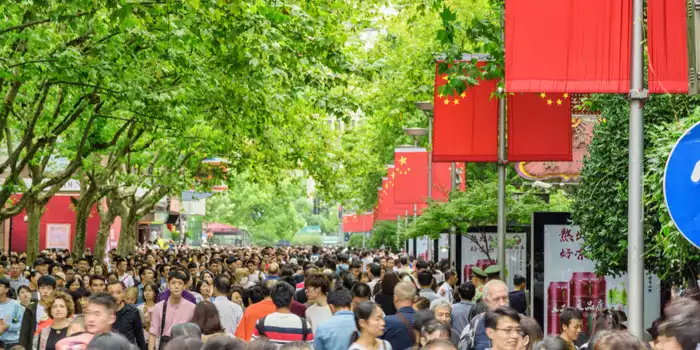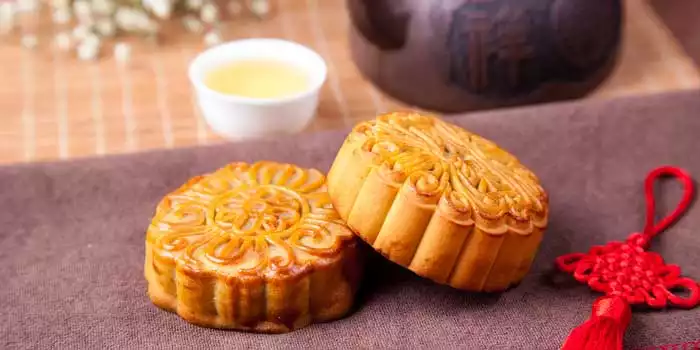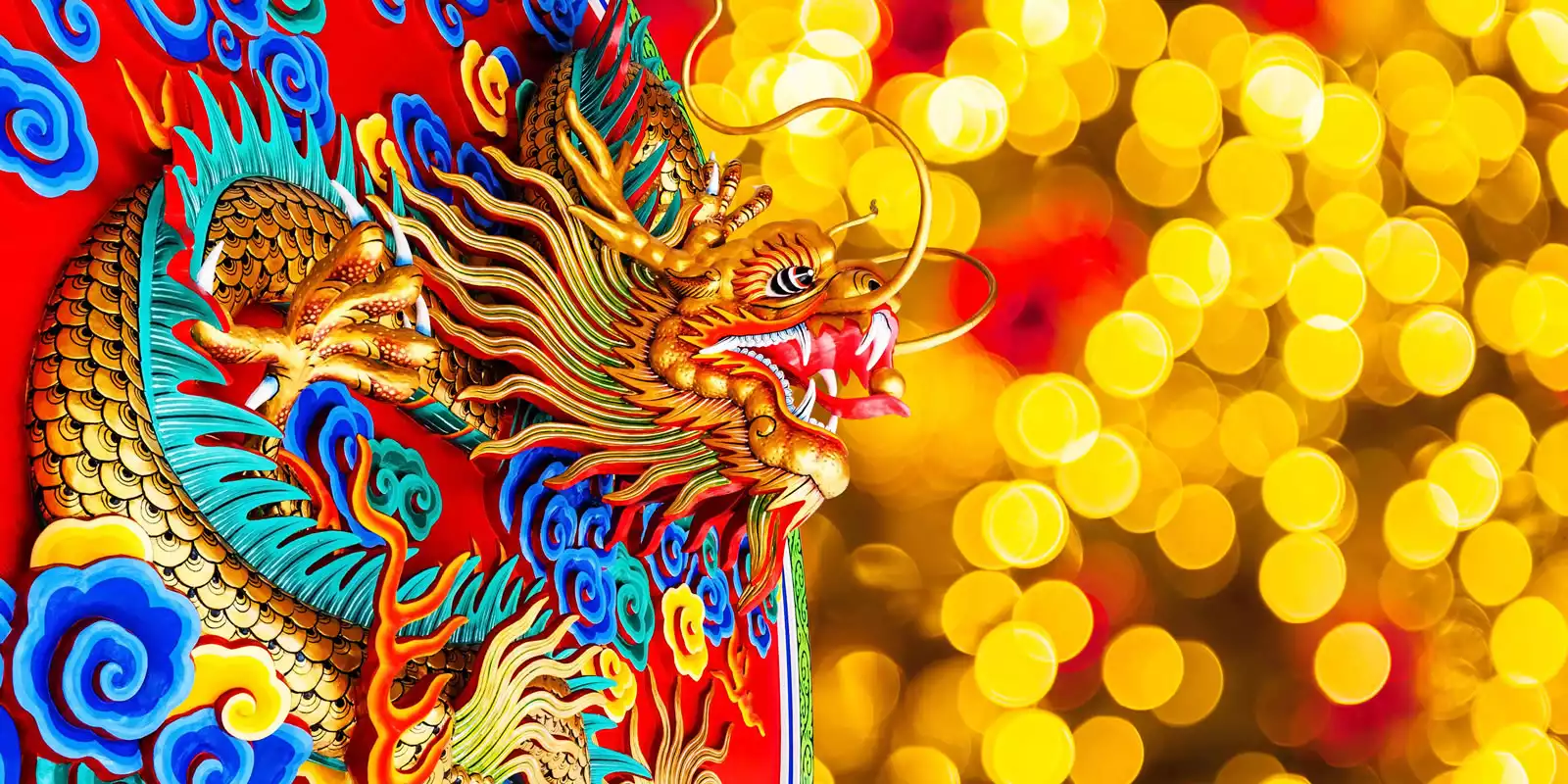
Discover the best time to go to China with Wendy Wu Tours
Save up to £1,000 per person on touring worldwide Offer ends: 23 Dec 2024 View Offers
The best time to visit China is in spring, April to May and autumn, September to October,
Spring time sees the fruit trees blossom and the plants starting to bud, providing a stunning backdrop on which to base your China exploration. Temperatures are pleasantly warm without being excessively so and evening are cool without the humidity the summer months can bring
Autumn is considered one of the best times to go to China as the weather tends to be warm and dry, and much more comfortable than other times of the year. Across the country, hues of reds and yellows appear throughout the countryside. The Great Wall, lined by vivid trees and forests, is an even more spectacular sight than usual whilst farther south, the terraces of Longji (near Guilin) and Yuanyang (Yunnan province) turn a golden yellow as the rice ripens for harvest. But it is Jiuzhaigou National Park that offers the most glorious autumn vistas. The vast forests become a blanket of colour which is then reflected in the park’s many lakes – an explosion of autumn!
However, as you’d expect from the fourth largest country in the world covering 5 times zones, there is also a great deal of variety to consider when planning your China Holiday.
Strictly speaking China has six climate zones but for our purposes we can split it into five:
The last thing to consider when deciding the best time to travel to China is national holidays. Chinese New Year and Golden Week are extremely busy times of the year when it feels like the whole country is on the move and the summer school holiday months can also see major attractions very full. Take a look at our month by month guide to see the detail for each region when you want to go.
Once you are happy with your choice you can filter all of our China Tours by departure month – what could be simpler?
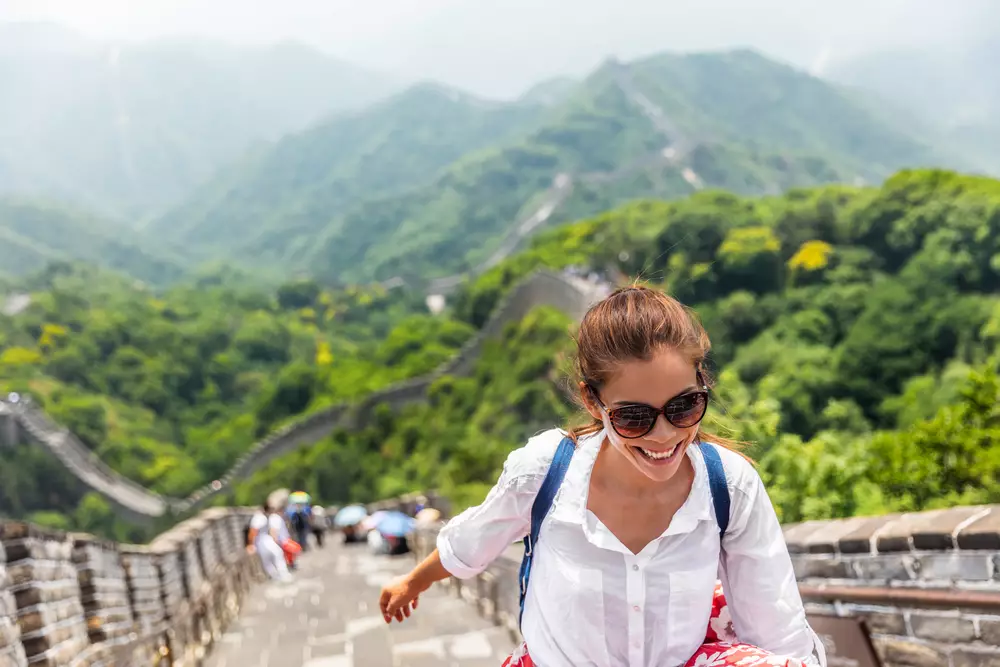
Travel your way with the perfect tailormade itinerary - completely bespoke to you and your travel needs, wants and wishes. Decide where, when and how with the help of our expert team and make your dream China itinerary a reality.
January in China can be very cold indeed and we don’t recommend travelling during this period. Temperatures in northern China are especially low, down to minus 9 in Beijing and even lower around Harbin. The east is windy and damp, central China often experiences snow and ice and the west is bitterly cold at altitude. The south is relatively milder but with average highs of just 10 degrees, our advice is to give this month a miss. Chinese New Year generally falls in late January or early February and is to be avoided as most of the country is on the move during this time.
One of the of the world's biggest winter festivals, Harbin is brought alive with magical ice sculptures and numerous ice and snow events such as skiing, an ice-lantern exhibition, ice golf, and ice archery.
Fireworks illuminate the sky and the sculptures are lit with multi-coloured floodlights giving the whole area a magical atmosphere.
See it on a Tailor Made Tour.Winter is still in full swing in China during February and much of the country is still very cold. Temperatures in Beijing still hover around freezing and you may experience snow on the Great Wall although the region is generally dry with clear skies.
The rest of China is cold and damp during this time although slightly more pleasant in the south and in Yunnan. By the end of the month the first signs of spring are appearing and sites will generally be quieter. Chinese New Year generally falls in late January or early February and is to be avoided as most of the country is on the move during this time.
One of the of the world's biggest winter festivals, Harbin is brought alive with magical ice sculptures and numerous ice and snow events such as skiing, skating and even ice golf. Fireworks illuminate the sky and the sculptures are lit with multi-coloured floodlights giving the whole area a magical atmosphere.
See it on a Tailor Made Tour.
Also called Yuan Xiao Festival, the Lantern Festival dates back over 2,000 years. People light lanterns to pray for their futures and their families, children go out at night carrying paper lanterns and solve riddles on the lanterns and women who are hoping for a child walk under a hanging lantern.
Spring has arrived, especially in central and southern China, and this is a great time to travel around the country. Temperatures are warming up everywhere although it can still be chilly around Beijing with daytime highs around 12 degrees. Flowers are blossoming and although the cherry blossom season is not such an event as in Japan – it is still a colourful time of the year to visit. The water towns around Shanghai are especially beautiful at this time of year.
Spring is a beautiful time to visit China with the countryside bursting into colour. The country’s fruit trees are particularly resplendent and a number of Peach Blossom festivals are held all over the country. The most famous is in Shanghai where, along with enjoying the blossom, the parks host music and dance performances.
April is a great time to visit China with comfortable temperatures almost throughout, perfect for touring and sightseeing. Fruit trees are in full bloom and parks and gardens look spectacular. Although you may experience some rainy days, you may also benefit from beautiful misty conditions around some of China’s magnificent landscapes.
Spring is a beautiful time to visit China with the countryside bursting into colour. The country’s fruit trees are particularly resplendent and a number of Peach Blossom festivals are held all over the country. The most famous is in Shanghai where, along with enjoying the blossom, the parks host music and dance performances.
A three day public holiday the Qingming Festival is also known as the Tomb Sweeping Festival as families visit the tombs of their ancestors and give them a thorough spring clean. Kite flying is also very popular at this time
Summer arrives in China in June and temperatures start to rise. The temperatures in the north can reach the high twenties but humidity is low and this is still a great time to visit. The mountain air is fresh in Yunnan province and this is one of the best times to be touring in Tibet and on the Silk Road with pleasant days and very little rainfall. Although rainfall and humidity are both higher in the south and east it is still a fascinating time to visit, the rivers are in full flood and paddy fields and terraces glimmer with reflected light.
The Dragon Boat Festival has been celebrated for over 2,000 years to commemorate the ancient poet Qu Yuan and has been held in recent times on 5th day of the 5th month of the traditional Chinese calendar, hence the alternative name, the Double Fifth Festival. Dragon boats are raced and sticky rice wrapped in lotus leaves Zongzi and rice wine are consumed. Celebrated all over the country, Victoria Harbour in Hong Kong is one of the easiest places to catch a race.
September is a wonderful month to be travelling almost anywhere in China with comfortable temperatures and humidity falling throughout the month giving rise to very pleasant touring conditions.
Due to an ancient belief that ghosts are released from hell to roam the earth during this month, numerous traditions have sprung up to appease them. Fake money is burnt, special ceremonies are performed, incense burned and food is laid out to feed the hungry ghosts. Night time feasts are also often held with an empty place left for the ghost.
October is an absolutely lovely month to be travelling in China with sunny dry conditions the norm. The north enjoys daytime highs around twenty and whilst the east and south are a little wetter, don’t let that put you off – the conditions are just about perfect. Bear in mind the first week of October is Golden Week, a national holiday in China, so everywhere is extremely busy at this time.
China’s National Holiday, also known as Golden Week, occurs on October 1 to commemorate the founding of the People’s Republic of China in 1949. Millions of people return home for this holiday so transport, accommodation and attractions are extremely busy.
Also called Moon Festival, the mid-autumn festival is the second most important festival in China, after Chinese New Year. Traditionally, families gather together and enjoy a dinner with mooncakes, and worship the moon with gifts and lighting lanterns
December is cold almost all over China, the north extremely so; you might encounter snow in Beijing or Xian. Although the temperature graphs look more enticing in the south, the wetter conditions can make travelling here during this time very gloomy indeed.
The Winter Solstice Festival is held on the shortest day of the year to mark the turning of the seasons. Visits are made to temples and special foods eaten, dumplings in the north, wontons or glutinous rice in the south.
Read our latest articles or travel inspiration, exciting news about our destinations and all things Wendy Wu Tours
